ERSA winter school
Senior lecturer of the Department of Applied Economics and doctoral student Egor Kotov have participated in the 4th ERSA Winter School on applied quantitative methods in regional science hosted by the Faculty of Economic Sciences, University of Warsaw. This school gathered 25 students from across the world.

The first day of the school was focused on the latest R packages for spatial data manipulation and analysis, as well as classic R packages and spatial econometric models. The practical classes were presented by doctoral students of the Faculty of Economic Sciences, University of Warsaw: Maria Kubara and Kateryna Zabarina.
Ove the next five days school attendees had a deep dive into the methodology and practical tools employed by the school instructors in their own academic research and published papers.
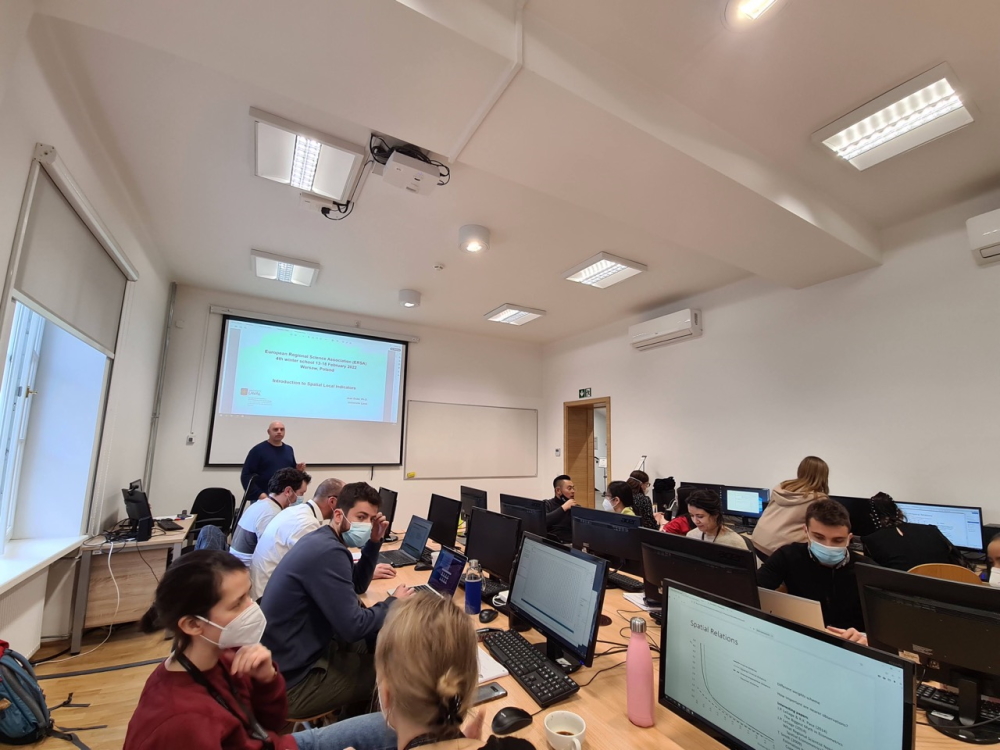
Prof. Jean Dubé (Université Laval, Canada) dedicated his class to point data analysis. He argued that generating new variables based on location of observations may allow to avoid spatial econometric methods in final models and therefore simplify the models, essentially reducing them to linear or log-linear form.
Prof. Roberto Patuelli (University of Bologna, Italy) presented eigenvector spatial filtering method and its applications to spatial data as well as origin-destination matrices. Such filtering also allows to avoid spatial econometric models, although still requires neighbourhood matrices.
Prof. Martin Andersson (Blekinge Institute of Technology, Sweden) walked the listeners through three of his most cited papers, focusing on the challenges of working with spatial and non-spatial microdata on individuals, groups of individuals and firms from the government databases.
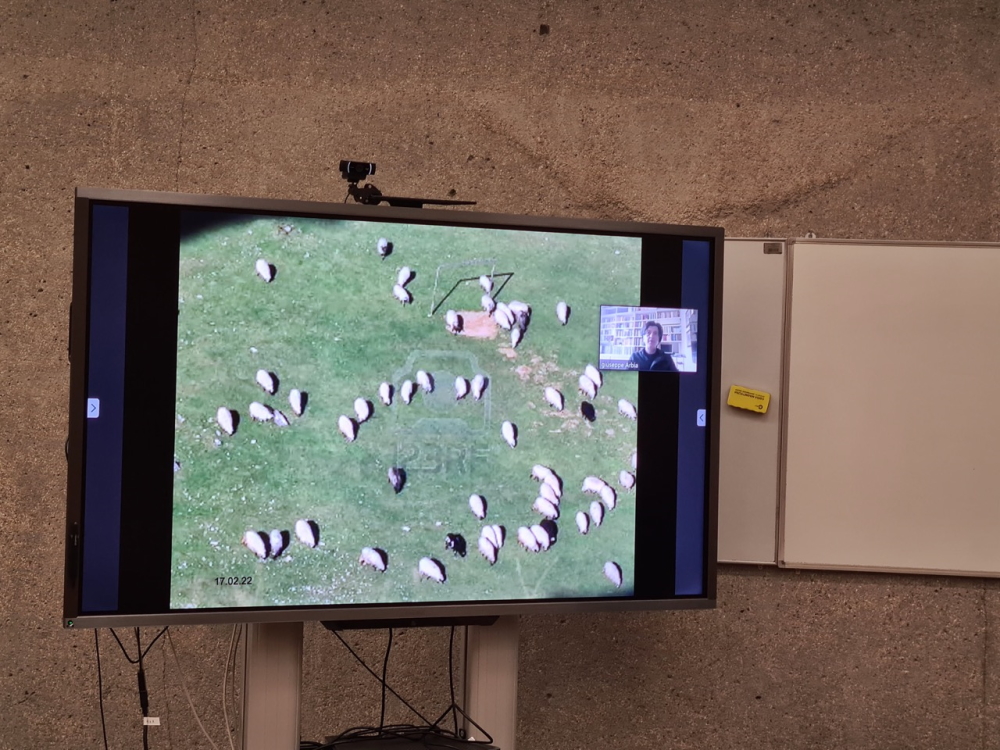
Prof. Giuseppe Arbia (Catholic University of the Sacred Heart, Rome, Italy) reminded the attendees of the modifiable area unit problem. He suggested several approaches as well as R packages to analyse the point patterns without prior spatial aggregation.
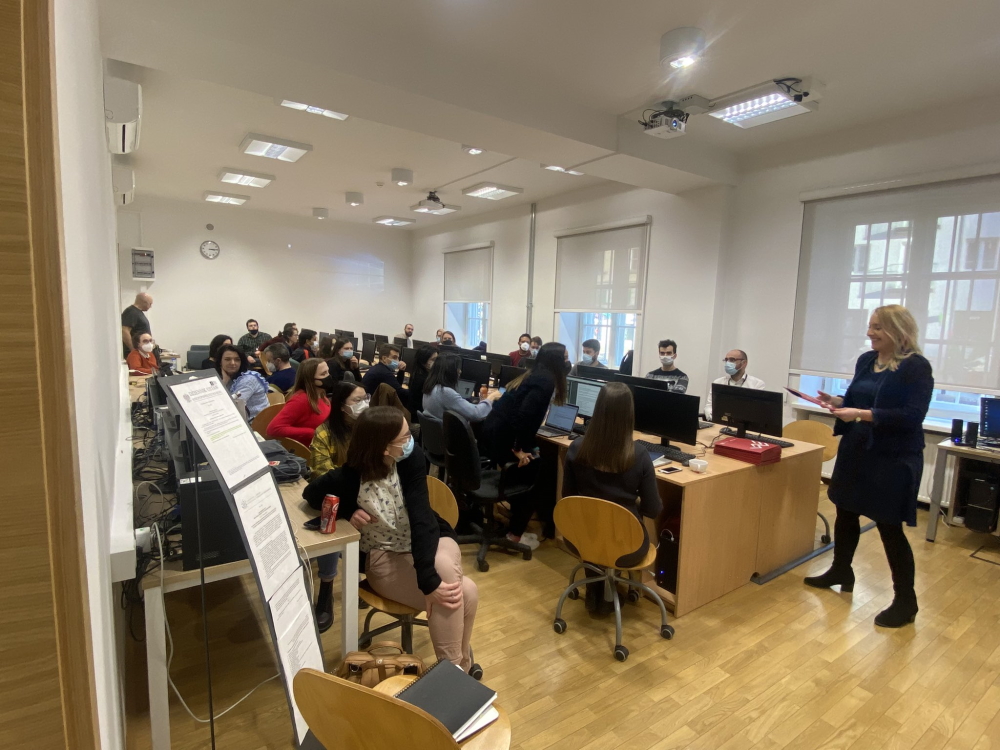
On the last day the University of Warsaw organisers Prof. Katarzyna Kopczewska and Dr Mateusz Kopyt presented the new approaches and tools in regional science: unsupervised machine learning and clustering, geocoding of non-spatial data (using OpenStreetMap and open-source tools) for spatial modelling and analysis.
During the school the students and tutors also actively discussed the future of spatial econometrics, its limitations and applicability to modern large data sets. Unsupervised machine learning and similar techniques were regarded as the most promising direction for applications in regional science. This was in line with the fact that all tutors were presenting methods that aimed to avoid the classic spatial econometrics models.
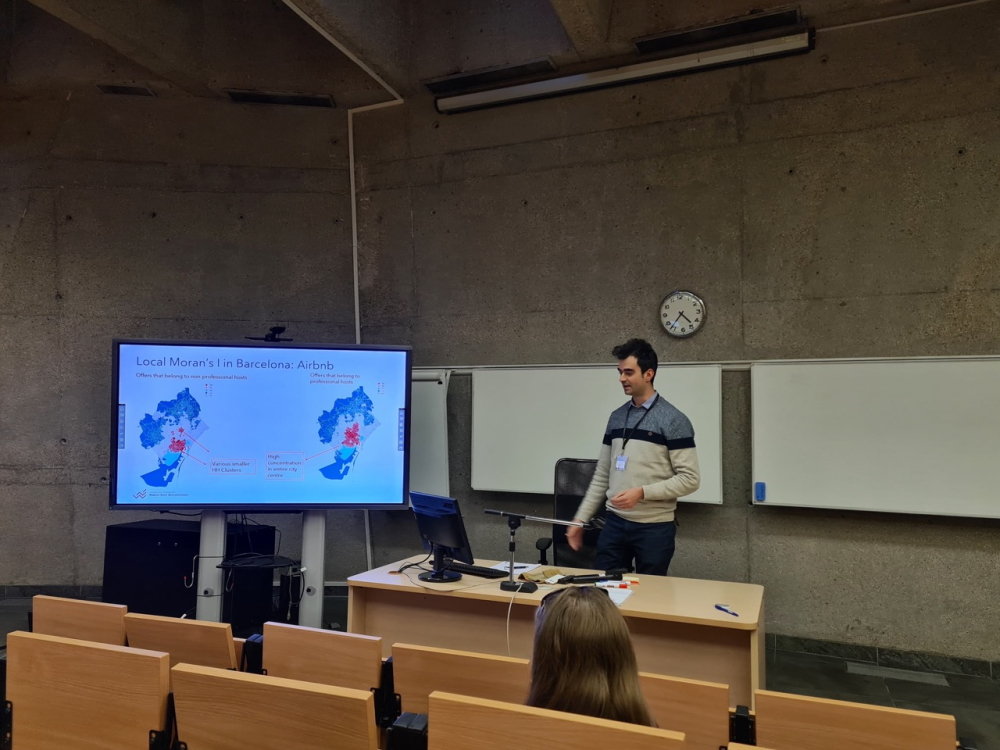
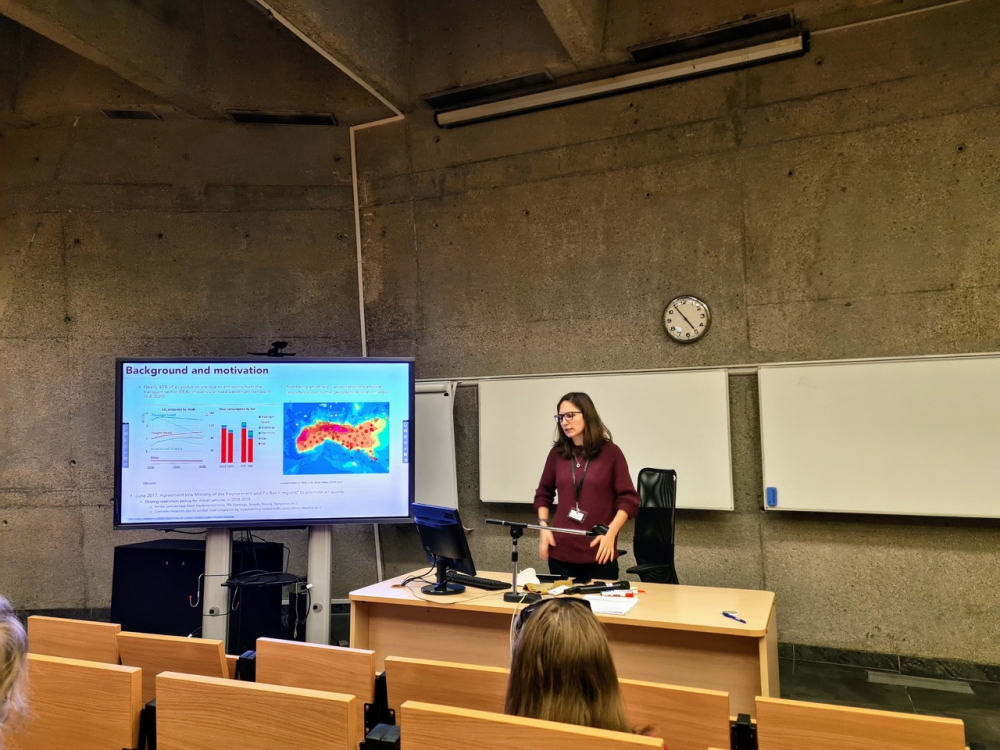
In addition to the classes, school attendees also presented their own PhD research to get the feedback and questions from both the winter school tutors and other attendees.
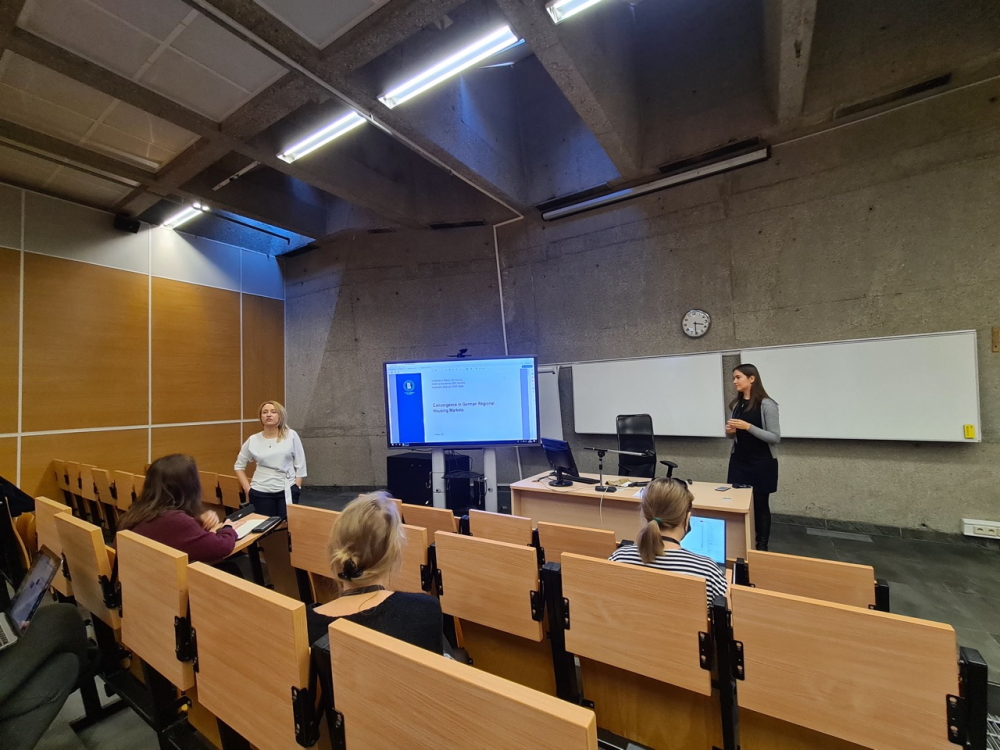
Elena Semerikova reported on «Convergence in German regional housing markets», Egor Kotov presented the draft of his research «Land use and accessibility factors of work and non-work trips: evidence from the Moscow mobile phone data».
